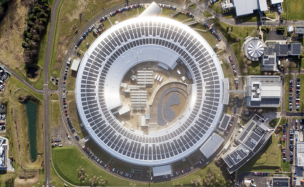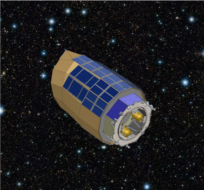Not everything that ends up in space from the Earth’s surface is traveling on a rocket. In January, the island volcano Hunga Tonga-Hunga Ha’apai erupted, causing shockwaves across the Pacific…
…and in the ionosphere, the region of space between 80-1000km above the Earth’s surface. Up there, Earth’s weather mixes together with that of space. Space weather encompasses changing radiation conditions caused by events like solar flares and geomagnetic storms.
We know that space weather occasionally gets through our atmosphere, when solar flares wreak havoc on Earthly power grids and communications systems. It works the other way around, too.
New research
Scientists working with NASA’s Ionospheric Connection Explorer (ICON) satellite found that the Hunga Tonga eruption sent “a giant plume of gases, water vapor, and dust” flying at up to 724 km/h into the ionosphere. Hunga Tonga also sent shockwaves traveling through the atmosphere at speeds of 300 meters per second. These wild conditions produced strange electrical currents in the ionosphere.
- “The volcano created one of the largest disturbances in space we’ve seen in the modern era,” said Brian Harding, UC Berkeley physicist and lead author of the research paper.
- Particles in the ionosphere tend to flow together in an eastward-bound electric current. Readings from ICON showed that the eruption caused the current to switch directions for a short period of time and surge to five times its normal power.
Payload’s takeaway: We know little about the complex interactions that take place right at the edge of space. This research arms us with a brand-new understanding of how conditions on Earth may extend out into space.





